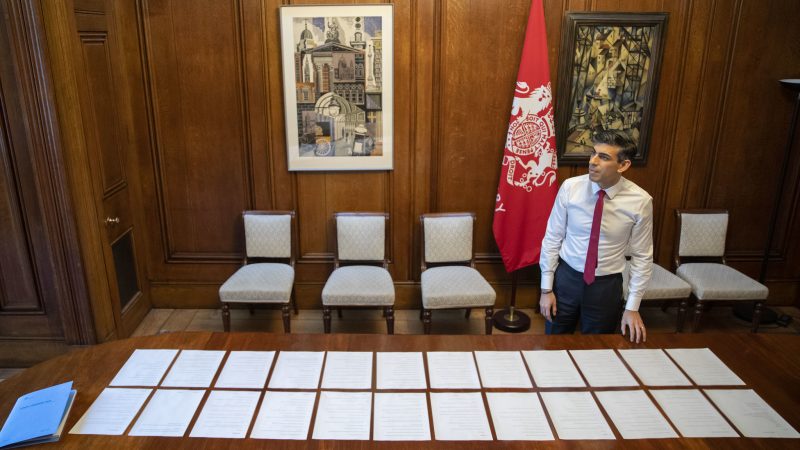
Labour shadow minister James Murray has accused Chancellor Rishi Sunak of “scrabbling” to limit the damage from the rise in National Insurance contributions by rushing through an increase in the National Insurance threshold today.
In a debate on the increase to the threshold – announced at the Spring Statement on Wednesday – the shadow Treasury minister said Labour would be supporting the bill as “any help” for people to deal with the tax hike is “something we welcome”.
But Murray argued that the fast-tracking of the legislation “does not inspire confidence that the Chancellor is in control, with a well-thought through package to help people as they struggle to make ends meet”.
“Indeed it gives the impression of a Chancellor who has made the wrong choice and is now scrabbling at the eleventh hour to limit the damage,” the Labour frontbencher added.
He expressed concern about the delay in the introduction of the increase, noting that it will be implemented on July 6th – three months after the rise in National Insurance contributions kicks in.
Murray said: “If the Chancellor had decided to raise the thresholds earlier this month or even if he had made that decision earlier this year, then his decision could have been announced and legislated for sooner.
“If that had been the case, these new thresholds could be in place from April, or at any rate at some point sooner than July, providing at least some extra help for people in the critical three months ahead when National Insurance is being hiked and energy bills are set to soar.”
He added: “Either the Chancellor only made the decision about the thresholds on the morning of March 23rd or he made it earlier, and yet sat on it when he could have acted to help people sooner.”
Murray also noted that there is “nothing” in the clauses of the bill that “addresses the secondary threshold for employers”.
“We have warned since the National Insurance hike was introduced that this would be a tax on working people and their jobs. Yet none of the clauses in this bill address the level at which employers will have to pay the raised rate of National Insurance,” he said.
“We know from the Office of Budget Responsibility that this not just an issue for employers wanting to create jobs. The rise in employers’ National Insurance contributions will also hit workers through a double whammy as the increase is passed on by way of lower wages and higher prices.”
Responding for the government, Treasury minister Lucy Frazer said it was “not possible for the majority of software and payroll providers” to make the necessary changes to deliver the increased threshold by April.
“Delivering it to an April timetable would see millions of individuals paying the incorrect NICs at the start of the tax year,” she added, noting the “additional administrative burden” it would put on employers.
Commenting on when Sunak decided to increase the threshold, Frazer said: “The Chancellor has been considering for some time how he can impact and help those who might be impacted by the cost of living issue that we are currently facing.”
The National Insurance contributions (increase of thresholds) bill completed its passage through parliament this afternoon. It passed its second reading without a formal division.
Labour MP Clive Efford put forward an amendment to propose that the Treasury be required to present a report on the effects of the legislation on the incomes of in-work Universal Credit claimants who pay National Insurance.
He highlighted that those on Universal Credit who pay National Insurance will lose part of the saving from the increased threshold to the 55% taper rate. “This is money being clawed back by the government from some of the poorest workers in the country and that can’t be right,” Efford said.




More from LabourList
‘Energy efficiency changes must work for older private renters’
‘Labour’s creative destruction dilemma’
Economic stability for an uncertain world: Spring Statement 2026